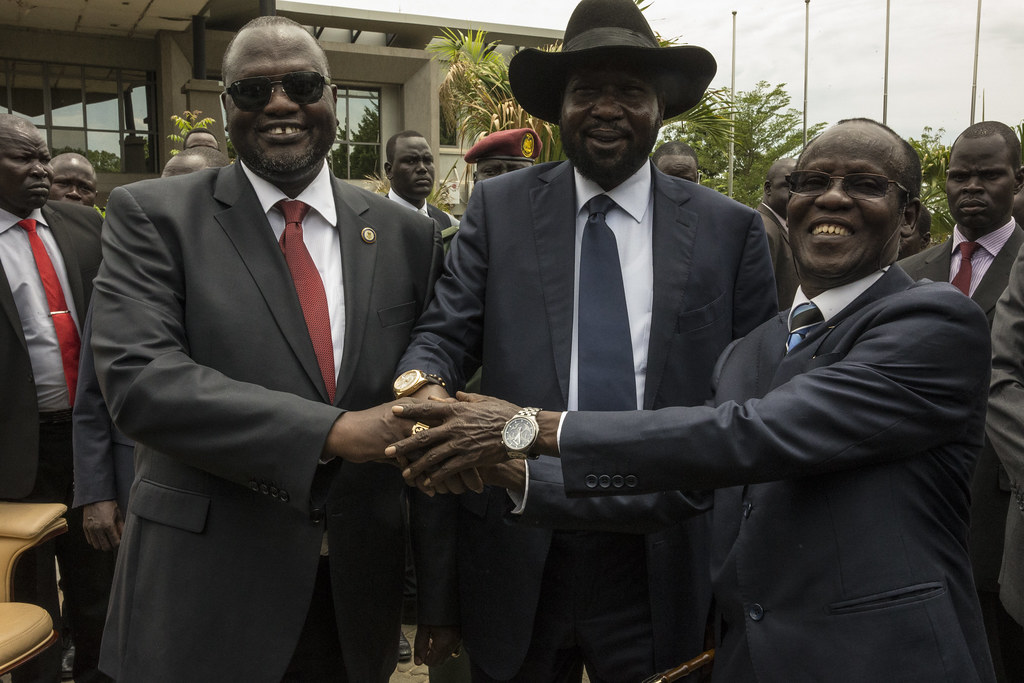Ottawa
Canada’s Supreme Court today dismissed an appeal by Nevsun Resources Ltd. that sought to block a case brought against the company by three Eritrean refugees for the alleged used of forced labour at its Bisha mine in Eritrea.
The three plaintiffs allege they were national service conscripts and that their labour was provided to Nevsun and its operating subsidiary, Bisha Mining Share Company, through two Eritrean companies related to Eritrea’s ruling party and its military. They allege those Eritrean companies are documented slavers and the plaintiffs’ labour was extracted under threat of torture, arbitrary detention, imprisonment in inhumane conditions and reprisals against family members through Eritrea’s infamous “National Service” program.
Nevsun had argued that the lawsuit should be dismissed because ruling on the use of forced labour through the Eritrean government’s “National Service” program would constitute an impermissible intrusion on the sovereignty of the Eritrean regime. Writing for the majority, Justice Rosalie Abella rejected Nevsun’s argument, ruling that this so-called “act of state” doctrine “is not part of Canadian common law, and neither it nor its underlying principles as developed in Canadian jurisprudence are a bar to the Eritrean workers’ claims.”
Justice Abella also ruled that the plaintiffs’ claims for violations of international law rules against slavery, torture, forced labour, and crimes against humanity could move forward. She observed that the grave nature of these allegations may require “stronger responses” than typical civil claims due to “the public nature and importance of the violated rights involved, the gravity of their breach, the impact on the domestic and global rights objectives, and the need to deter subsequent breaches.”
She further ruled that corporations can be held liable for violations of international law, writing that Nevsun’s contention that corporations were immune from international law “misconceives modern international law.”
Nevsun denies the plaintiffs’ allegations, but the plaintiffs are confident that a Canadian court would render a fair and impartial decision on the truth of what happened. In contrast, Nevsun has fought hard for many years to avoid facing these allegations in a Canadian court. In 2017, a ruling of the British Columbia Court of Appeal (BCCA) rejected Nevsun’s argument that the case should be dismissed because Eritrean courts are a more appropriate forum for the lawsuit. The BCCA rejected this bid, noting that there was a real risk of an unfair trial for such a lawsuit in Eritrea.
Today’s ruling means that all obstacles put up by Nevsun in its attempt to avoid having these allegations decided by a Canadian court have been removed, and the case may now proceed to trial.
For several years, Human Rights Concern – Eritrea (HRCE) has drawn attention to the use of National Service conscripts as slave labour by Nevsun and other international companies in Eritrea. Commenting on the Canadian court’s ruling, HRCE’s Director, Ms. Elizabeth Chyrum, described it as “a significant milestone in holding perpetrators of gross human rights violations in Eritrea to account”. Ms. Chyrum added: “The Canadian court judgement is a huge step forward in the struggle for accountability for human rights abuses. If the plaintiffs go on to win this case, it will have major implications for other potential cases against international companies and their operations in Eritrea. It is hoped that, when this case finally comes to judgement, that it will become clear to all international companies working in Eritrea that they will be held responsible for the treatment of the workforce provided by the Eritrean government in their industrial operations. We will continue our efforts to bring an end to modern day slavery and to seek accountability for other human rights violations that are being committed against people in Eritrea.”
Human Rights Concern-Eritrea wishes to express its sincere gratitude to all the lawyers involved in winning this very significant Appeal Judgement.
This article was first published by the Human Rights Concern- Eritrea.







